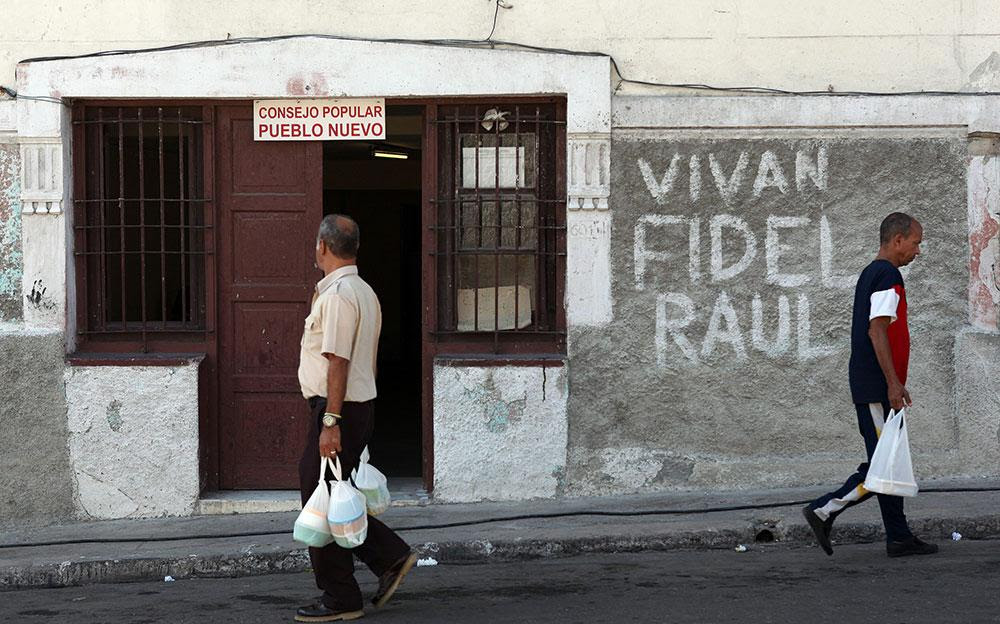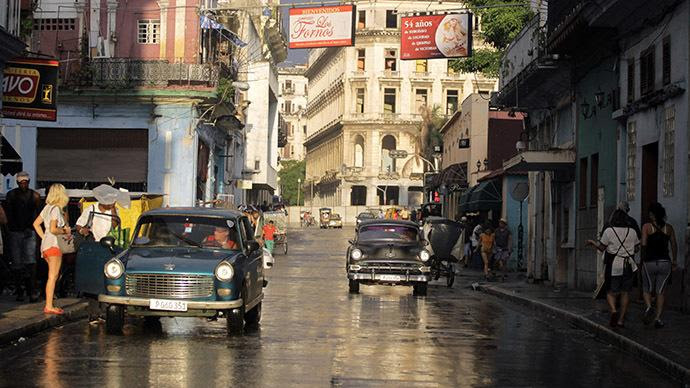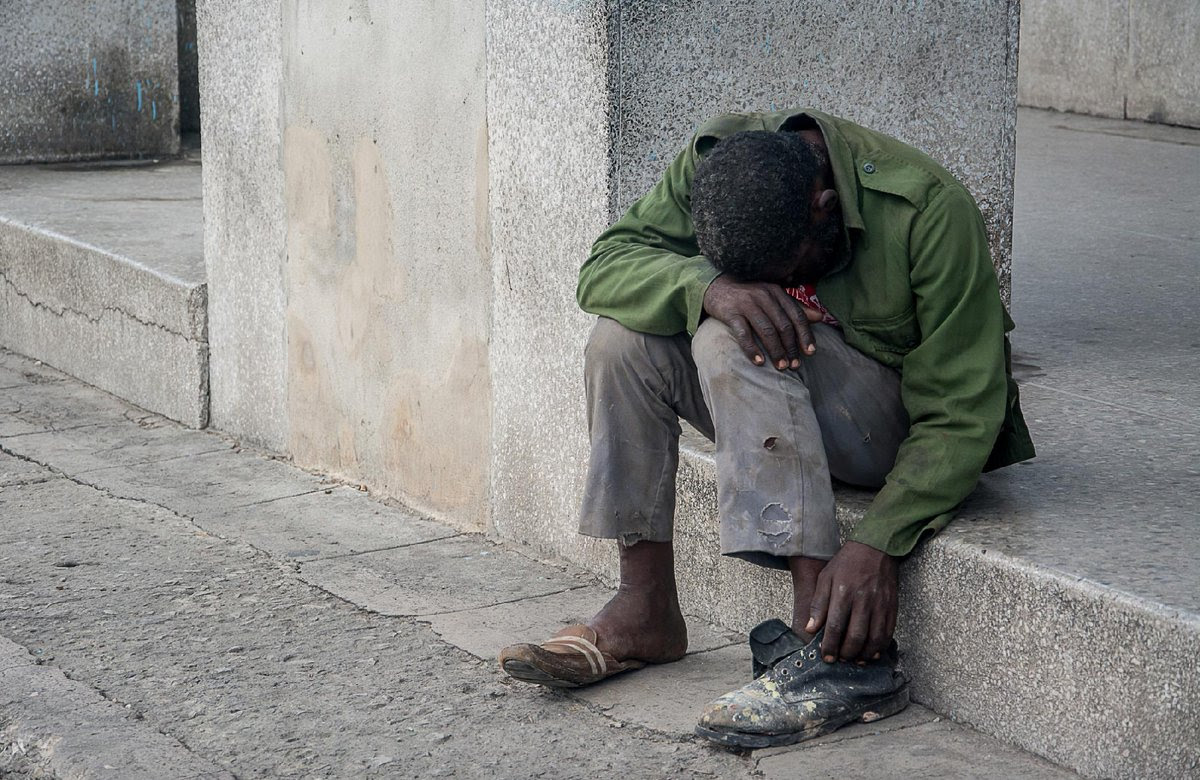President #RaulCastro: #Cuba not changing communist regime: image via Daily Sabah @DailySabah, 21 December 2014
A tobacco worker wrote
a poem to death. Amid the smoke
and the dry and twisted leaves of the plains
she said she saw the world in Cuba.
It was the year 1999... In her poem
she said she touched the flowers
that formed a magic carpet
flying circles round the Plaza of the Revolution.
In her poem, this worker
grasped tomorrow’s days.
In her poem there were no half shadows, just energetic lamps.
In her poem, friends, there was no Miami, no claims being made;
there was no begging,
there were no acts of malice,
no violations of the labor law;
there was no interest in the Stock Exchange, there was no profit.
Her poem was full of militant cunning, languid intelligence.
Her poem was full of discipline and meetings.
Her poem was full of guts and heart.
Her poem was a treatise on popular economy.
Her poem was full of the desires and anxieties
of a revolutionary, her contemporary.
A tobacco worker wrote
a poem to the death throes of capitalism. Yes, sir.
But not even her brothers, not even her neighbors
guessed at the essence of her life. And they never learned of the poem.
She had kept it, tenaciously and delicately,
together with some leaves of hemp and caña santa,
in a clothbound book
of José Martí.
Nancy Morejón (b. Havana 1944): Tobacco Worker, translated from the Spanish by David Frye in With Eyes and Soul, 2004
"@Yusnaby: #Cuba: Aquí viven Solange y sus 3 hijos, conoce la historia…" #TROPA #ObamaFirmaYa: image via V e r ó n i c a @53@7, 13 December 2014
Obama orders re-establishing of US embassy in #Cuba: image via RT America @RT_America, 17 December 2014
In #Cuba, chants of Viva Obama! That's what @Reuters @danieljtrotta heard in #Havana: image via Don Colarusso @Colarusso42, 18 December 2014
Why #Cuba has accepted the dialogue with the US ? Because it is near
collapse @Slatefr: image via Fredric Martel @FredricMartelf, 21
December 2014
Él, abogado retirado recoge pomos y latas para sobrevivir. Ella,
graduada de derecho en Bélgica de turismo en #Cuba: image via Yusnaby
Perez @Yusnaby, 13 December 2014
@Yusnaby: Pizarra de la carnicería estatal "La Octava Maravilla" en La
Habana, #Cuba: image via Patricia Herrera @pherrera, 13 December 2014
@Yusnaby: -Pero imagínate chico, yo no tengo familia en Miami que me mande zapatos. #Cuba: image via Patricia Herrera @pherrera, 13 December 2014

A Havana woman waits in a 1950s vehicle that operates as a shared taxi: photo by Ramon Espinosa/AP via the Guardian, 20 December 2014

People have lunch at a cafe in St Petersburg: photo by Dmitry Lovetsky/AP via the Guardian, 20 December 2014

An old photo of Che Guevara takes pride of place in a Havana residence: photo by Ramon Espinosa/AP via the Guardian, 20 December 2014

A tangle of old and new electrical circuits on a wall in a building in Havana: photo by Ramon Espinosa/AP via The Guardian, 20 December 2014

Two women chat on their balconies in Old Havana: photo by Ramon Espinosa/AP via The Guardian, 20 December 2014

A man lights a cigar in a cigar club shop in Havana: photo by Ramon Espinosa/AP via the Guardian, 20 December 2014

Bolivar cigars on display in a cigar club shop: photo by Ramon Espinosa/AP via the Guardian, 20 December 2014








some wonderful photos, Tom.
ReplyDeleteHere's some Wendel Berry, on tobacco cutting...
'There is incessant speculation about the weather. There is much laughter; because of the unrelenting difficulty of the work, everything funny or amusing is relished.And there are memories. ..The crew to which I belong is the product of friendship and kinship going far back. And so as we work we have before us not only the present crop and the present fields, but other crops and other fields that are remembered. The tobacco cutting is a sort of ritual of remembrance....The conversation, one feels, is ancient.
One does not miss or regret the past, or fear or long for the future. Being there is simple all, and is enough.'
Billoo,
ReplyDeleteMany thanks.
I beieve the poem has to do with the life and experience of Nancy's mother, who did this sort of work in prerevolutionary Havana.
Some interesting links:
From a documentary by Juanamaria Cordones-Cook on Nancy Morejón
Nancy Morejón reads Botella al mar, 2007 (Spanish)
Nancy Morejón reads her poems at First International Festival of Poetry of Resistance, Toronto, 2009 (Spanish / English)
Nancy is a world poet who continues to make her home in Havana, where she was born and raised. Her mother was a tobacco labourer, her father a dockworker and merchant seaman. Her work is an important cultural product of the Cuban Revolution. In 1985 I was fortunate to get to meet and talk with her after reviewing her first American book, Where The Island Sleeps Like a Wing (Black Scholar). A treat, that was.
Tobacco labour figures in the history in this country as well, of course. Perhaps not the brightest chapter.
ReplyDeleteLewis W. Hine: Child Labor, Kentucky, 1916
Dorothea Lange: Wake County, North Carolina, July 1937
Dorothea Lange: Granville County, North Carolina, July 1937
Dorothea Lange: Person County, North Carolina, July 1937
Dorothea Lange: Whitfield Family, Person County, North Carolina
Wonderful poems by Nancy Morejón, Tom, here and in the videos. As for dear Cuba, I tremble to think what globalization will make of that island. One hears the knives being sharpened at the whetstone even now. The AP reports this morning that “American technology firms will likely be interested in putting Cubans to work assembling electronic components, taking advantage of low-wage labor far closer to the United States than India and China.” (Note that low wages are assumed).
ReplyDeleteWe know how that turned out: slave factories, worker suicides, and deadly pollution over there; and over here, the antipodes of joblessness and commodity addiction—and deadly pollution.
Hazen,
ReplyDeleteYes, I've been thinking along those same lines. To be shocked away from a knowable if often painful past into smartphones and apps -- frying pan to fire?
That more might well be lost than gained is almost any given in any transaction involving any bully on any block is a given, but still... and Guantanamo still open for bad business.
But it was encouraging to hear that Cuba has refused that extradition case from New Jersey. Because they are driven to have to do business does not seem to mean they are quite yet a client state.
This has all the critical force you find in Brecht - we need works of art that are both social engaged and beautiful.
ReplyDeleteI read this article a few months ago.